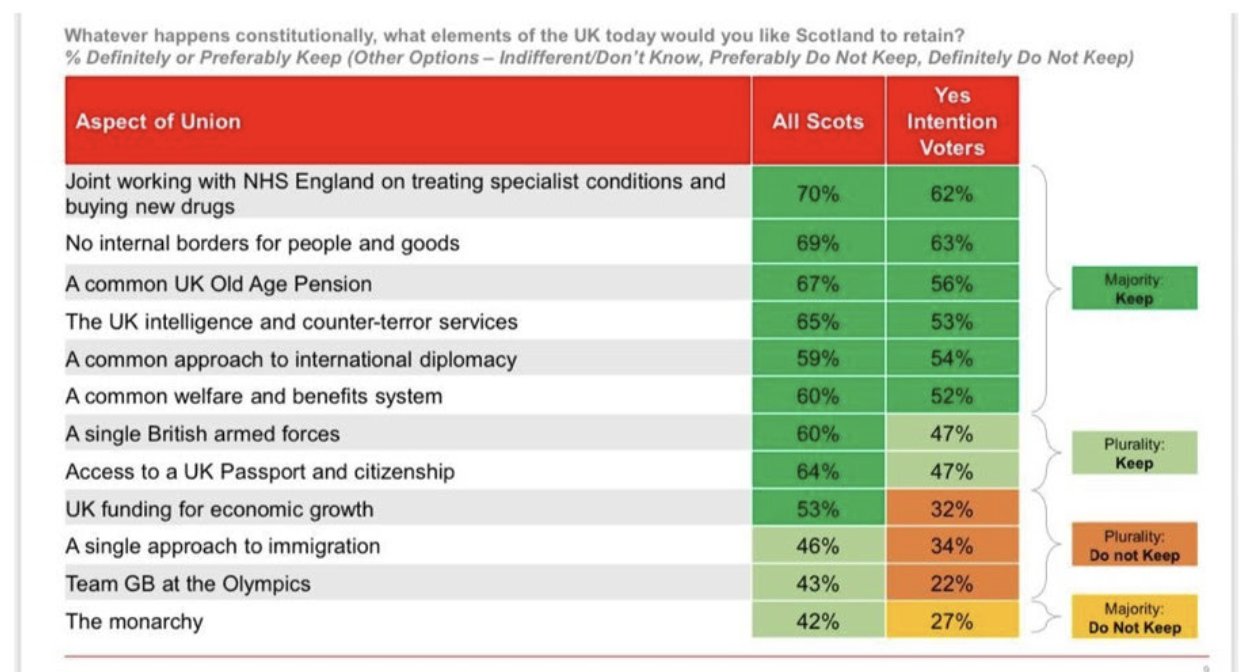What do Scotland's "yes" voters really want?
An interesting poll published in a newsletter by Eddie Barnes of "Our Scottish Future" which asked voters in Scotland which aspects of the Union they would like to keep suggests that the divide between the two is not nearly as binary as it usually appears.
If the poll is anywhere near accurate - a rather large "if" - a big majority of Scots, and a majority even of "Yes" voters, would like to keep
- Joint Working with NHS England on treating specialist conditions and buying new drugs
- No internal borders for people and goods
- A common UK old age pension
- Common UK intelligence and counter-terror services
- A common approach to international diplomacy
- A common welfare and and benefits system.
A majority of Scots and a plurality of Yes voters would like to keep common UK armed forces with access to a UK passport and citizenship.
If this is accurate, that isn't really independence at all, it's a looser federal-type union with greater devolution.
The poll suggests a huge amount of "having your cake and eat it" which is likely to run into exactly the sort of problems we've had with Brexit, especially in both parts of Ireland. For example, there are real difficulties with the idea that you can combine Scotland having a different approach to immigration from the rest of the UK while not putting up any internal borders. While we have no internal borders that means that if you let someone into England they can get into Scotland and vice versa.
One number which will concern supporters of the Monarchy will be how low support for keeping it appears to be in Scotland according to this poll - only 42% among all Scots, a narrow plurality and just 27% with a majority against keeping the Monarchy among Yes voters.
Eddie Barnes warns against supporters of the Union drawing too much comfort from these figures. But they certainly start to sketch out what might be a more popular and sustainable shape for the Union as a whole as I think we will continue to move towards a more federal United Kingdom in some ways.
It also pinpoints the areas on which the "No" campaign could focus if the SNP do eventually get another referendum. Some of the things the SNP are proposing - like a border between England and Scotland - are clearly not popular even with their own base. And some of their false narratives - like the ridiculous suggestion that the UK would continue to pay the pensions of citizens of an independent Scotland - need to be more effectively debunked.

Comments